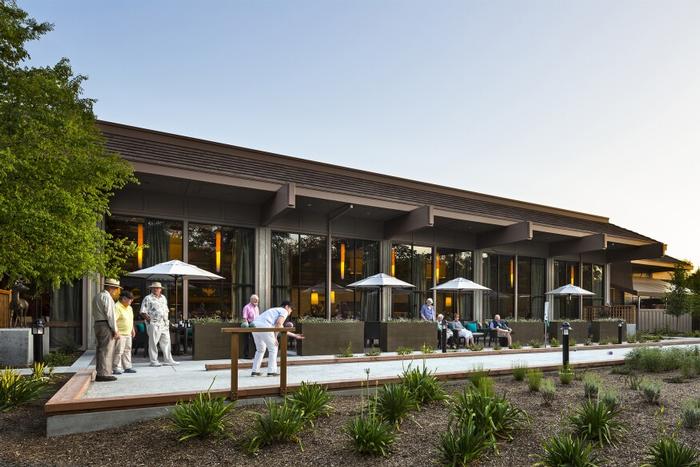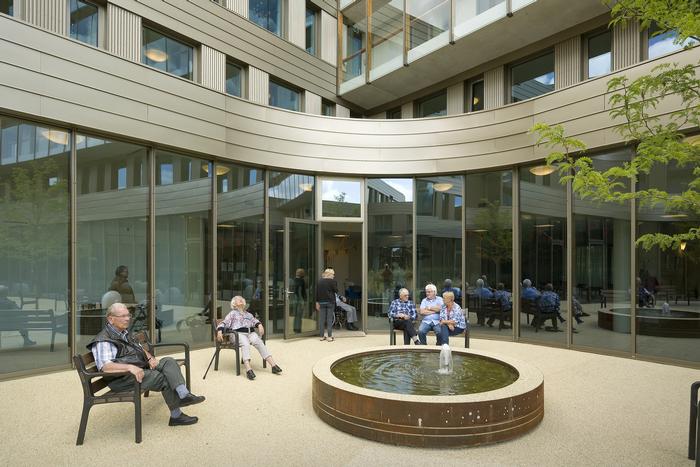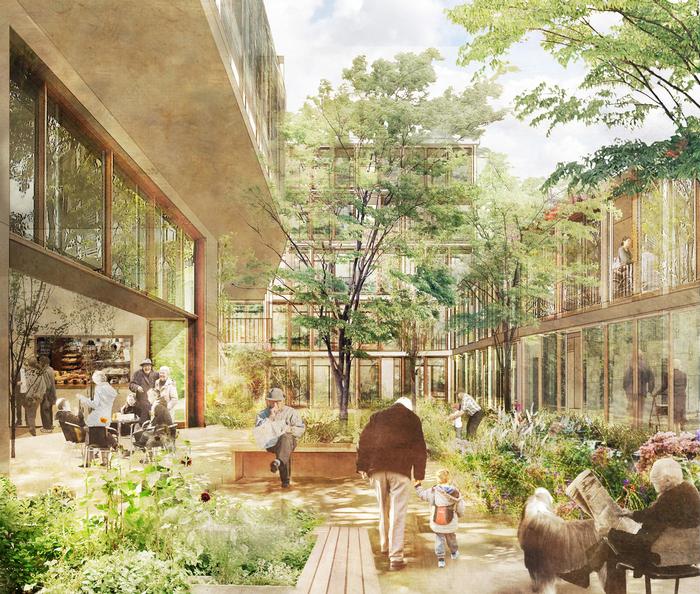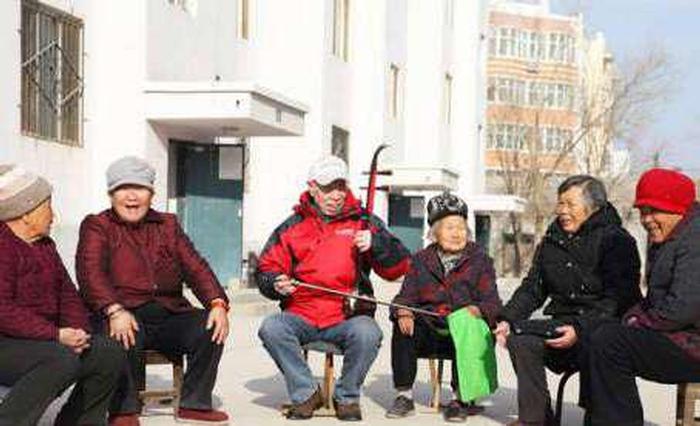[ID:4858] 9 going on 90Pakistan The End.
Standing in this intricate mesh of idleness and commotion, the two words echo in Girl’s mind – their visual equivalent in movies doing them a disservice. Over here, there were no sunsets in the distance to drive towards, no exalted reunions, no beginning of a new life chapter. Why do movies depict the end for young people’s lives anyways? There was no youth when you’re at the end. Only age and a long, winding battle against time. That was not the end. This was. A slow cataclysm.
Girl feels the wrinkly, paper-thin skin she holds onto tugging her forward. Like clockwork, Abbi reassuringly squeezes her hand every time they conquer the queue by a mere step. Girl admires that about Abbi. Being 86 has not devoid his soul of anticipation yet. Maybe it even reunited with him after a lifetime of 9-5’s – the aftermath of a calculated, mechanical life working in the same government institution. There couldn’t be many things to look forward to in his retired age. Maybe being squished in a queue outside in the sweltering heat was even exciting to her grandfather now. He didn’t seem to be bothered by the uncomfortable pushing while others talked over them as they tried to maneuver forward gracefully. As Girl looks around, she makes a mental note that no one seems to be bothered actually. They were in discomfort, yes. But not bothered. It was as if they had quietly accepted that this haphazardly sprawling line was the only space they were allowed to occupy in public.
She ponders about the spaces that her grandparents often did get to occupy. Even within the comfort of their home, Girl knew the whole house was not welcoming to them. Her grandmother could not walk two steps without the help of a cane and taking the stairs to the upper floor was entirely out of the question. Abbi has less trouble climbing the steps and would often come to read the newspaper in her bedroom upstairs while she did her homework. These visits were growing less often though, and Girl had noticed. His weary knees were betraying him and very soon, he would stop visiting her room altogether – just like her grandmother had. He would prefer his ease and stay confined downstairs, where comparatively little effort was required for him to move around from one room to the other. The thought makes her heart go quiet. Were fifteen stairs all it took to separate the house into two different spatial fragments – theirs and not theirs? But even that does not seem right, because her grandmother couldn’t really blame the vertical circulation for her limited ground level activity. It was still a task for her to walk ten steps in a straight line. Maybe no space was ever really theirs, after they came of age. Not really. At least not without support. The queue moves forward, and Girl finds herself right back in it with no answer to that question.
She simply cannot stop thinking about it. She knows that these social analyses are not common for a 9-year-old but to her they are justified. Girl turns 10 next week; her first double digit year. A decade of experiences is an insurmountable amount of thoughts to contend with. If she was not thinking about her frail grandparents, certainly no one else will be. Am I also turning old? Girl identifies yes as being the only fathomable reason for being entrusted to accompany her grandfather right here – in the entrenching shadows of the state pensioners’ office while endlessly waiting to make a claim. She is trustworthy now. She is of help to Abbi. She mildly enjoys the idea.
To Girl, this enjoyment also comes from a complimentary spectacle of life. Standing outside in a formation of white-cladded men – why only men? – was an advanced liberty for social satire in her reflections. The thought cannot escape her that had she been a grown woman, could she not have taken part in this odd queue? The experience was definitively uneasy, and it was probably unsafe to be this exposed to the harsh outdoor conditions considering the health and resilience of those around her. But even the most trembling of grey-haired men had managed to muster strength to wait in line. The elderly women on the other hand, seem to have been erased one-by-one from this social sphere altogether. Girl imagines her grandmother in this space, in this instance. She cannot move beyond the thought that her grandmother would not be able to access anything beyond the street curb – that one, single step enough to end any experience before it even began. It probably was another obstacle to overcome for many of the aged men here as well.
She finds it almost comical that this sandy and featureless façade awaiting them is a manifestation of domineering power systems, its pull magnetic enough to miraculously summon the feeble elderly every 1st of the month. She has often heard her parents whisper about the rising inflation and the hold their just-enough-money has over their lives. This must be what they keep a secret from her. This must be commodification. This whim for their money that pointedly managed to get these men out of their familiar, sheltered beds in front of this foreboding, intimidating edifice. There are surely better things to do on a Saturday 10 am.
Her musings revert to Abbi who has his eyes straight ahead, somehow laser-focused at the task at hand. She cannot help but wonder if his focus is aimed at the wrong priority. He isn’t really retired. Not really. He thinks he is, but he is not, and he has yet to materialize this epiphany. Quite honestly, everyone here has. The agony of this line did not seem like a reward for a lifetime of services. If he was truly retired, they would be in the public park opposite the street threshold, amongst the juxtaposition of animated children and watchful parents. Girl scours the vivacious green setting in the city’s unrelenting concrete grayness. Not one person like Abbi. Odd.
Maybe they wouldn’t be spending time in that park together after all.
Her eyes catch a quick glance at Abbi, ashamed that he would see that traitorous thought. The park was for her, and she wanted it. But it wasn’t for him. It was not as if there was a lack of space. The green breather outstretched far and wide across them, only separated by a double-car lane. But there was a lack of inclusion and somehow that was worse.
Where would he even sit? Out of the three benches in the park, only two appeared to be functional and even one of them was dangerously near a rotting USE ME! recycling bin. That was not someplace anyone would like to sit, especially those on the cusp of deteriorating health. The lone acceptable option flushes the entrance. She could go on and play on her own while he could watch from there. But how would he see her perform the cartwheels she’s just learnt with his miserly eyesight? If he can’t interact with his granddaughter in this family park, what else was he supposed to do? He cannot just be an identity-less physical addition to the landscape. Abbi always enjoys time outdoors, a habit he picked up from spending countless hours in the 400 square feet sehan in his childhood home – the introverted courtyard all the refuge and canvas that an adolescent boy could ask for. It was routine. Their current home had no courtyard and barely any lawn space. Girl speculates that her grandparents would enjoy life outside if more spaces in the city offered them one. They would be the guardian eyes on the street – silent keepers of community inclusivity and child safety in the public realm of spaces like this park. They would be at the face of activity, instead of hidden away in their four-walled structures at home. There was something inherently poetic about it, the idea of the advanced stage of life being visibly intertwined with the world outside.
For the first time in her nearly decade-of-life, did Girl feel like the park was a luxury rather than a vitality. Designed to house grandiose for the grandiose. Spending time at the park was one of her most cherished treasures. But maybe only people who have the luxury and mobility of meandering in grasslands on a weekend are the ones who can visit the park candidly. Maybe the existence of quality family time in the urban fabric is a lie – at least as far as her grandparents were concerned. Girl thinks back to the street curb and how it seemed inaccessible. The park was an illusion, seemingly inviting everyone in. Not everyone, though. It may not be segmented on intermittent levels, but it was segmented in its usability. Without benches, rails or canopies, even the very ground itself was functionally inaccessible for the elderly. And if they were unable to find space in the open-air rolling grassiness, then where is it that they will ever find space – outside or inside? They didn’t just yearn for the outdoors, they needed it. The fresh air, the warmth of natural sun, the lingering effect of daylight. And somehow, only Girl is thoughtful enough to deconstruct complex societal underpinnings that adults cannot seem to grapple with. She is starting to realise this now.
The queue steps forward.
Eyes back on the line now, she increasingly becomes aware of all the small ways the file of people is agitated. Several of them refute the harshening sunrays in their emblematic shalwar kameez with a namaazi cap – this prayer cap is too thin to actually work. An uncle clenches a motorcycle helmet like he’s hugging it – is he afraid to lose it or is it probably his only friend here. Three have resorted to taking off sandals and sitting on them to neutralize the heat from the concrete paving below - that’s genius. Girl looks to her grandfather, whose eyes are still riveted to the front of the line. He must be tired by now, despite his insistence of not wavering in front of her. He does not have his physical strength in many of the same ways anymore, but he convinces himself to be strong for her. For her family. Girl wishes she could also convince him to be okay to lean into his age. She wishes he did not have to be strong. This space really could benefit from a designated shaded waiting area. Or small benches. Her eyes travel back to the ones sitting on their sandals. They appear to belong to an unspoken community, an invisible sub-city. Maybe Abbi could also join them if he could still sit on the ground. Interact like he does when he’s at home, sitting on his favorite chaarpayi, the rope-work bed his own personal sanctum. He seems to always enjoy that, the small space that propels an invitation to sit together and simply talk.
Girl’s mind keeps whirring, wondering if the most effective solution could be the simplest one. The queue was frustrating and long, but the discomfort came from the actual presence of the queue itself and not the claim-process for their pension. What if this transaction was shifted inside the government building, with an indoor waiting space. There would be no agony from the heat, access to fans and a roof over all these people’s heads as they sought this necessity. They could wait inside, actually seated on chairs without any obsessive fear of losing their personal possessions like the uncle with his motorcycle helmet. Or what if this whole system could be digitised? Technology should essentially facilitate the design of lifestyles. And catering for the needs of senior citizens included just as much as good governance as smart design choices. Right now, it may appear that Abbi and everyone else here are unaffected by the wait. In reality, they are merely overly used to the hassle. There is nothing remotely enjoyable about what the pension collection system represents. The façade is closed off, a 3 feet by 3 feet window opening the only facilitation to the line outside. At the grassroot level, their experience is willfully overlooked, and this leads to lack of initiation at the top-tier decisions.
Girl continues wondering about what she can do to help and the need for empathy in designing for the elderly. Sooner or later, most people have to see the day when their own hands wrinkle and veins deepen in color. The quality of urban and spatial connections must be designed to cater for this inevitable life change. Universality in design is one positive step to making room for the elder citizens. Where there is a curb outdoor, there must be a ramp. Where there are stairs in commercial spaces, there must be an elevator and wheelchairs to access them. Where there are levels in dwelling, there must be a node for activity on the ground that encourages her grandparents to interact. Spaces must have character and be personalized and intimate in their function, materiality and visual appeal. What if her own home was visually connected across levels, creating a porous connection between life on all floors in the dwelling. She could work on her homework and wave to her ailing grandmother. Her parents might feel less worried about their own parents being isolated to their beds. Buildings tend to outlive uses. Girl remembers the time she studied in a small, private schooling system within a small home herself. She knows from experience that spaces can be adaptable and flexible in programs to cater to their users. A thoughtfully designed space has fundamentally good bones – and strong bones are important for people and architecture alike.
I am playing a curious game of psychogeography ping-pong between the free and the old, of age and of life. But maybe my thoughts are enough to help. Maybe they will find the right hosts. Maybe this next step we take is actually towards a more inclusive and accessible societal design.
The queue steps forward. One more foot conquered.
If you would like to contact this author, please send a request to info@berkeleyprize.org. |




